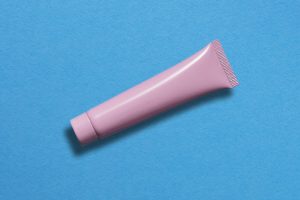Pyelonephritis and kidney infections require prompt treatment. According to the Drug Administration, kidney infections cause millions of medical visits and hospitalizations in the US. Urinary tract bacteria can cause fatal kidney infections. If left untreated, these infections can permanently damage the kidneys and cause life-threatening sepsis. Some doctors may recommend Nitrofurantoin for kidney infection.
Nitrofurantoin is a critical kidney infection antibiotic.
It treats UTIs, especially those that affect the kidneys and other kidney diseases. Understanding how nitrofurantoin works will ensure proper antibiotic therapy for kidney health and patients with these devastating illnesses.
This post highlights Nitrofurantoin facts, including its uses, efficacy, and other patient/provider concerns.
What is Nitrofurantoin?
Nitrofurantoin is an antibiotic that helps to treat bacterial infections, particularly those that cause UTIs.
This medication is available in pills and suspensions and sold under the brand names Macrodantin and Macrobid. This medication is also available in generic form. However, not all of the strengths or forms available in the brand-name medication may always be in generic form.
What Are the Uses of Nitrofurantoin?
Nitrofurantoin is needed to eliminate UTI germs. After several days of frequent usage, it restores the urinary system’s natural balance of helpful bacteria, reducing UTI symptoms.
However, Nitrofurantoin does not treat bacterial infections like strep throat or sinuses. It also does not treat sexually transmitted diseases, as they require special testing and treatment.
What is the Dosage for Nitrofurantoin?
Nitrofurantoin dosage depends on the patient’s age, medicine type, and medical condition. The dosage will also depend on whether you want to treat or prevent UTIs.
Typically, adults and teens take 50–100 milligrams of Nitrofurantoin at bedtime to prevent UTIs. A doctor must prescribe an appropriate dose for children and infants above one month, determined by the child’s weight. Newborns under one month old should not be given this drug.
UTIs are treated with extended-release capsules in adults, teens, and children over 12. For seven days, 100 milligrams are given every twelve hours. Nonetheless, a healthcare professional must advise children under 12 on the proper dosage and usage.
It’s critical to handle missed dosages carefully. If a dose is missed, patients should take it right away. But if the next dose is coming up, the missed one should be ignored, and the usual dosing plan should be reinstated. It is not advisable to double up on doses to make up for missed ones.
Maintaining the medication’s efficacy requires proper storage. Nitrofurantoin should be stored at room temperature in a tight container away from heat, moisture, and light. Please keep it away from children for safety. Patients should also remove expired or unused medication to avoid consumption or misuse.
Which Drugs Interact with Nitrofurantoin?
Nitrofurantoin is an effective antibiotic for UTIs, but patients should be advised of the dangers and interactions before using it. Below are five significant interactions you should be aware of:
Antacids with Magnesium Content: Avoid antacids containing magnesium trisilicate when taking Nitrofurantoin, as they may lessen the effectiveness of the medication. Take caution when using other antacids that contain magnesium.
Probenecid: This gout medication can increase nitrofurantoin levels in your blood, increasing the risk of side effects. Also, high nitrofurantoin levels reduce urine levels, which decreases the drug’s ability to treat UTIs.
Specific Live Vaccinations: Certain live vaccinations, particularly travel ones, may become less effective when administered with Nitrofurantoin. Schedule your vaccines carefully, adhering to the CDC’s recommendations for appropriate timing after using Nitrofurantoin.
Methotrexate: When methotrexate, a drug used to treat a variety of illnesses, is combined with Nitrofurantoin, there is an increased chance of severe lung reactions. Patients should consult their doctor about the pros and cons of concurrent use.
Specific Laboratory Tests: Nitrofurantoin in urine tests might cause false glucose positives, indicating pulmonary reactions or diabetes. Patients should tell doctors they take Nitrofurantoin before a urine test to avoid confusion.
Awareness of these interactions and discussing them with doctors ensures safe and effective nitrofurantoin UTI treatment. You should follow medical advice and tell your doctor about all your prescriptions to avoid issues.
Read also: Is Metronidazole Safe in Pregnancy and Breastfeeding?
What are Nitrofurantoin Side Effects?
Oral nitrofurantoin capsule users should be aware of the following side effects, which may be mild or severe:
Common Side Effects
Intestinal Issues: Nitrofurantoin can cause nausea, vomiting, loss of appetite, stomach pain, and diarrhea.
Neurology symptoms: These may include headaches, dizziness, weakness, and hand and foot numbness or pain. Drowsiness may also happen.
This medication can also cause a yeast infection or oral thrush from consistent use. These minor adverse effects usually go away in a few days to weeks. Seeking medical advice is crucial if symptoms persist.
Serious Side Effects
Lung Inflammation: Nitrofurantoin can cause lung inflammation, which brings about fever, chills, coughing, chest pain, exhaustion, and shortness of breath. If these symptoms arise, seek medical attention immediately.
Liver Disorders: Severe liver disorders can cause jaundice, which is yellowing of the skin or eyes, itching, nausea, vomiting, dark urine, and appetite loss.
Nerve Damage: Nerve damage causes hand and foot numbness, tingling, and muscle weakness, which requires rapid medical intervention.
Hemolysis: Pale skin, weakness, and weariness can arise from Hemolytic anemia. If these symptoms occur, seek medical treatment.
Severe Diarrhea: Nitrofurantoin can induce very loose, watery stools, stomach pain, and sometimes blood in the stool.
Patients with these severe symptoms should contact their doctor or seek emergency care. These potentially dangerous side effects require immediate medical treatment.
What is a Kidney Infection?
Pathogenic bacteria invade the kidneys, causing a severe UTI called pyelonephritis. This condition can lead to severe pain and health issues if neglected. Pyelonephritis requires medications and immediate medical attention to avoid complications.
Causes and Risk Factors
The most common cause of kidney infections is bacteria entering the urinary system and reaching the kidneys. Risk factors and common causes include:
UTIs: E. Coli can enter the kidneys through the bladder or urethra and cause disease.
Urinary Tract Obstructions: Diseases like kidney stones or enlarged prostates can block urine flow, allowing bacteria to develop and infect the kidney.
Sex: Sexual activity can raise the risk of kidney infections by introducing bacteria into the urethra, particularly in women.
Pregnancy: Urinary tract alterations during pregnancy might transmit bacteria to the kidneys.
Immune System Weakness: Diseases that weaken the immune system, like HIV and diabetes, increase kidney infection risk.
Signs and Symptoms
The following indications and symptoms are frequently present with kidney infections:
Pain: Severe pain, usually on one side of the body, in the lower back, or on the side.
Urinary Symptoms include frequent urination, a burning feeling during urination, and an urgent feeling to urinate.
General discomfort symptoms include high temperature, chills, and a sense of unwellness (malaise).
Vomiting and Nausea: Vomiting and nausea are possible, particularly in severe cases.
Cloudy or foul-smelling Urine: Modifications to the color, clarity, or urine odor.
Diagnosis and Medical Evaluation
Medical professionals commonly carry out the following procedures to identify a kidney infection:
Health Background: The patient and healthcare professionals discuss symptoms, medical history, and risk factors.
Physical Examination: Tenderness and infection-related symptoms are checked in the back and abdomen.
Urinalysis: The presence of germs, white blood cells, and other anomalies are examined in a urine sample.
Blood Tests: Blood samples may be obtained to evaluate the health of the kidneys and the body, including looking out for infections indicated by elevated white blood cell counts.
Imaging Tests: Imaging tests, such as CT or ultrasound scans, may occasionally be used to see the kidneys and urinary tract and spot any anomalies or obstructions.
Managing kidney infections and avoiding consequences like kidney damage or bloodstream infections rely heavily on prompt diagnosis and adequate treatment, typically involving antibiotics. Individuals exhibiting signs pointing to a kidney infection should get checked out immediately.
Is Nitrofurantoin for Kidney infections effective??
Doctors often recommend Nitrofurantoin for kidney infections or pyelonephritis. It eliminates pathogenic germs, aids the immune system in infection removal, and relieves kidney infection pain.
To guarantee that the infection is removed, it is necessary to take Nitrofurantoin for the entire recommended duration of treatment as instructed by a medical expert. If the recommended antibiotic treatment is not followed, germs may remain, making the infection harder to cure.
Patients must adhere to their doctor’s guidance, finish the prescribed drug regimen, and attend follow-up appointments to ensure the infection has been effectively treated. As discussed with the healthcare professional, being aware of any possible nitrofurantoin side effects and interactions is critical.
How Effective is Nitrofurantoin for Kidney Infections
Nitrofurantoin is sometimes the first-line treatment for lower urinary tract infections, including kidney infections. Its efficacy depends on the infection’s severity, germs, and patient health.
Remember that Nitrofurantoin doesn’t work against all germs. Healthcare providers may test for infection-causing microorganisms and decide if Nitrofurantoin is an acceptable treatment option. Nitrofurantoin works well for uncomplicated UTIs with susceptible microorganisms.
To increase the efficacy of Nitrofurantoin and eliminate kidney infections, patients must take the whole dose and finish the prescription as directed by their doctor.
Just like any antibiotic, Nitrofurantoin has variable reactions. Patients must notify their doctor of worsening symptoms or allergic reactions. To maximize Nitrofurantoin’s kidney infection treatment efficacy and safety, doctors examine the patient’s medical history, allergies, and drug interactions.
Alternatives to Nitrofurantoin for Kidney Infections
For kidney infections (pyelonephritis), several antibiotics can replace Nitrofurantoin. The proper antibiotic will depend on the bacteria causing the infection, the patient’s allergies, medical history, and local antibiotic resistance patterns. Nitrofurantoin alternatives for kidney infections include:
Fluoroquinolones: Fluoroquinolone drugs like ciprofloxacin and levofloxacin treat complex urinary tract infections, including kidney infections. They hinder bacterial DNA replication and act against many microorganisms.
Cephalosporins: Cephalosporin antibiotics like ceftriaxone and cefuroxime cure kidney infections by inhibiting bacterial cell wall production. Cephalosporins treat numerous microorganisms when the infection’s cause is uncertain.
Trimethoprim/Sulfamethoxazole (Bactrim): This combination of antibiotics is often used to treat kidney and urinary tract infections by blocking bacterial folic acid production. The antibiotic chosen relies on the bacteria’s susceptibility.
Aminoglycosides: Aminoglycoside antibiotics like gentamicin and amikacin cure severe kidney infections. They do this by inhibiting bacterial protein production. For severe infections or when other antibiotics fail, aminoglycosides are used.
Beta-lactam/beta-lactamase inhibitor combinations: These combinations block bacterial cell wall formation and treat various illnesses, including kidney infections.
Healthcare practitioners must examine kidney infection microorganisms for antibiotic susceptibility. This information helps choose the best and most targeted health solutions. To cure infections correctly, patients should follow their doctor’s orders and finish their prescriptions.
How Long Does Nitrofurantoin Take to Work on a Kidney Infection?
Nitrofurantoin frequently improves kidney infection symptoms such as pain, fever, and urine discomfort within a few days. Even if symptoms improve, you must finish the nitrofurantoin dose as suggested by your doctor.
Completing the antibiotic course helps to eliminate the illness and prevent bacteria from becoming resistant. It also prevents the bacteria from multiplying, causing the illness to return, which is usually more challenging to treat.
Patients must follow their doctor’s nitrofurantoin therapy and follow-up instructions. If symptoms worsen after a few days of taking the drug, you should see your doctor for further testing and treatment.
Does Nitrofurantoin Work for Kidney Infection in Men?
Clinical trials indicate Nitrofurantoin treats susceptible bacteria-induced pyelonephritis in men and women. Nitrofurantoin cures kidney and uncomplicated UTIs regardless of gender.
However, the antibiotic’s efficacy depends on the infection’s severity, bacterium type, patient health, allergies, or other health conditions.
Women and men with kidney infections should see a doctor. The doctor will assess the infection, test the germs, and choose the optimum antibiotic, such as Nitrofurantoin.
Other Treatment Options for Kidney Infection
Kidney infections are best treated with antibiotics. They target and kill infection-causing microorganisms. Antibiotics must be administered quickly to avoid problems and recurrence.
General supportive actions can also aid kidney infection symptoms and recovery beyond antibiotics. These include:
Hydration: Drinking water flushes germs from the urinary tract and improves kidney function.
Pain Management: Over-the-counter painkillers lower heat and pain. These do not replace antibiotics.
Rest: Adequate rest helps the body fight infection and recuperate.
Warm Compress: Warm compresses on the lower back and abdomen might relieve pain.
Avoiding Irritants: Caffeine, alcohol, and spicy foods cause urinary tract irritation.
While these methods relieve symptoms, they don’t cure the infection. Prompt diagnosis and antibiotic therapy are essential to treat kidney infections and prevent kidney damage or bloodstream infections.
When to See a Doctor
If you encounter any of the following signs of a kidney infection, you should consult a physician:
Extreme or Persistent Pain: Pain in the side or lower back, mainly if it is severe or does not improve with home treatments.
Fever and Chills: Prolonged fever that suggests an illness, high fever, or chills.
Urinary Symptoms: Urging with an intense burning feeling, needing to urinate quickly, especially if it hurts. Frequent urine.
Urine Changes: Murky, unpleasant-smelling, or stained with blood.
Vomiting and Nausea: Continuous vomiting, nausea, or appetite loss.
General Discomfort: Experiencing unexplained weight loss, being usually tired, or feeling ill.
Previous urinary tract infections: If you have a history of recurrent UTIs, particularly if the infections worsen or don’t get better with over-the-counter medications.
Getting medical help as soon as you suspect a kidney infection is critical. If kidney infections are not appropriately treated, they might cause significant consequences.
Read next: Can You Drink Coffee While Taking Nitrofurantoin?
Frequently Asked Questions
By eliminating the infection-causing bacteria, Macrobid (Nitrofurantoin) helps cure kidney infections by enabling the body’s immune system to eradicate the infection and alleviate symptoms.
When susceptible bacteria produce kidney infections, Macrobid can be helpful. For treatment to be effective, the entire specified course must be followed.
When prescribed and consumed as instructed, Macrobid can successfully cure kidney infections brought on by bacterial infections. It is essential to finish the entire course.
Nitrofurantoin is frequently used to treat kidney and urinary tract infections because it works well against susceptible bacteria.
If the bacteria causing the infection are nitrofurantoin-susceptible, doctors will prescribe Macrobid. It’s critical to adhere to the doctor’s directions for the best course of therapy.
The usual dosage for adults and children older than twelve is 50–100 mg every six hours. However, individual dosages might change depending on weight and infection severity.
Kidney infections can be treated with antibiotics such as trimethoprim/sulfamethoxazole, fluoroquinolones, cephalosporins, and Nitrofurantoin. The decision is based on the particular bacterium and the patient.
In most cases, Nitrofurantoin reduces kidney infection symptoms within a few days. The recommended course—typically lasting 7–14 days—must be completed for treatment to be effective.





